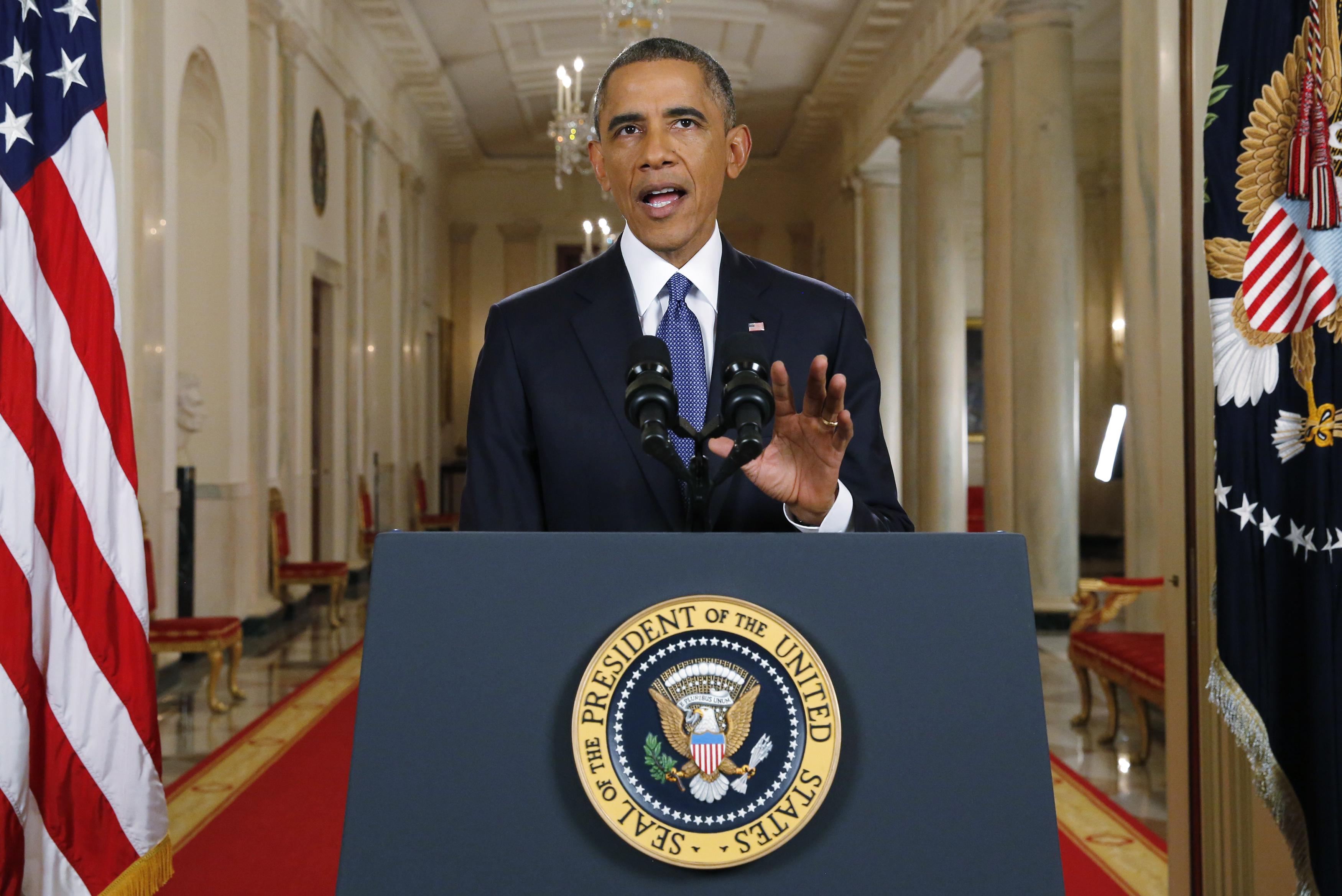In a primetime national address on Thursday, President Obama announced sweeping changes to U.S. immigration policy. “When I took office, I committed to fixing this broken immigration system.” Obama said. “Tonight, I am announcing those actions.”
During his remarks, Obama repeatedly stressed that the U.S. is a nation of immigrants, and that rounding up and deporting some 11 million undocumented immigrants wasn’t realistic. “For more than 200 years, our tradition of welcoming immigrants from around the world has given us a tremendous advantage over other nations,” Obama said. “But today, our immigration system is broken, and everybody knows it.”
Here’s how the President said he would start to fix it:
Now, I continue to believe that the best way to solve this problem is by working together to pass that kind of common sense law. But until that happens, there are actions I have the legal authority to take as President—the same kinds of actions taken by Democratic and Republican Presidents before me—that will help make our immigration system more fair and more just.
Tonight, I am announcing those actions.
First, we’ll build on our progress at the border with additional resources for our law enforcement personnel so that they can stem the flow of illegal crossings, and speed the return of those who do cross over. Second, I will make it easier and faster for high-skilled immigrants, graduates, and entrepreneurs to stay and contribute to our economy, as so many business leaders have proposed. Third, we’ll take steps to deal responsibly with the millions of undocumented immigrants who already live in our country …
Now here’s the thing: we expect people who live in this country to play by the rules. We expect that those who cut the line will not be unfairly rewarded. So we’re going to offer the following deal: If you’ve been in America for more than five years; if you have children who are American citizens or legal residents; if you register, pass a criminal background check, and you’re willing to pay your fair share of taxes—you’ll be able to apply to stay in this country temporarily, without fear of deportation. You can come out of the shadows and get right with the law.
That’s what this deal is. Now let’s be clear about what it isn’t. This deal does not apply to anyone who has come to this country recently. It does not apply to anyone who might come to America illegally in the future. It does not grant citizenship, or the right to stay here permanently, or offer the same benefits that citizens receive—only Congress can do that. All we’re saying is we’re not going to deport you.
In the lead up to Obama’s speech, the administration laid out more specifics of the Obama plan that would temporarily protect between four and five million undocumented immigrants from deportation, and allow them to work legally in the U.S. The plan prioritizes undocumented families and long-term residents in the country: Undocumented parents of U.S. citizens or legal permanent residents, and undocumented individuals who immigrated to the U.S. before the age of 16, are eligible for deportation protection. In both cases, an undocumented person must have continuously resided in the U.S. for at least five years—or since Jan. 1, 2010.
Obama also addressed Republican opponents of the plan, stressing that the measures did not amount to a blanket amnesty for undocumented immigrants.
I know some of the critics of this action call it amnesty. Well, it’s not. Amnesty is the immigration system we have today—millions of people who live here without paying their taxes or playing by the rules, while politicians use the issue to scare people and whip up votes at election time. That’s the real amnesty—leaving this broken system the way it is. Mass amnesty would be unfair. Mass deportation would be both impossible and contrary to our character. What I’m describing is accountability—a commonsense, middle ground approach: If you meet the criteria, you can come out of the shadows and get right with the law. If you’re a criminal, you’ll be deported. If you plan to enter the U.S. illegally, your chances of getting caught and sent back just went up.
Obama also spoke to Republican concerns that his sidestepping Congress and reforming immigration policy amounted to unlawful executive overreach.
The actions I’m taking are not only lawful, they’re the kinds of actions taken by every single Republican President and every single Democratic President for the past half century. And to those Members of Congress who question my authority to make our immigration system work better, or question the wisdom of me acting where Congress has failed, I have one answer: Pass a bill. I want to work with both parties to pass a more permanent legislative solution. And the day I sign that bill into law, the actions I take will no longer be necessary.
